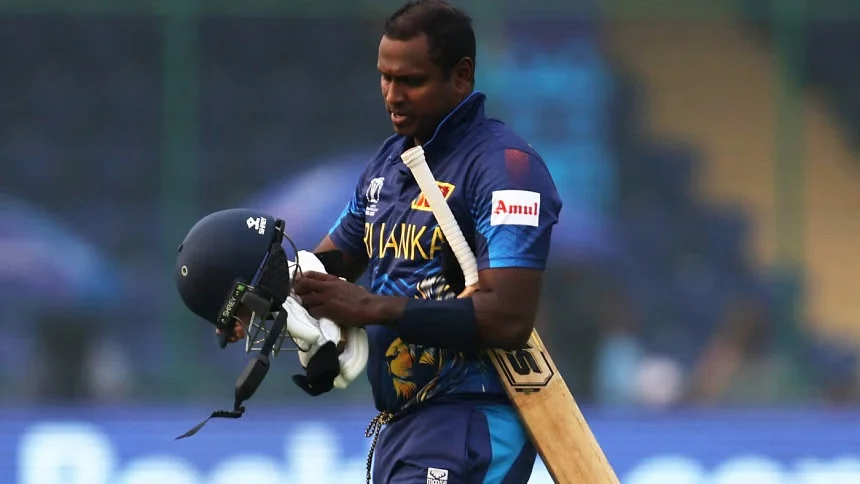Mathews gets timed out: How it happened
Share on:

Sri Lanka batter Angelo Matthews’ rare dismissal left even the most avid of cricket followers puzzled in their ICC World Cup match against Bangladesh in Delhi on Monday.
Sri Lanka batter Angelo Mathews' rare dismissal in their ICC World Cup match against Bangladesh in Delhi on Monday left even the most avid of cricket followers puzzled.
The right-handed batter took more than two minutes to take strike following the dismissal of Sadeera Samarawickrama in the 25th over, breaching Law 40.1 of the game which states that an incoming batter must enter the field and face a delivery within two minutes being timed from the moment a wicket falls.
"After the fall of a wicket or the retirement of a batter, the incoming batter must, unless Time has been called be ready to receive the ball or for the other batter to be ready to receive the next ball within 2 minutes of the dismissal or retirement. If this requirement is not met, the incoming batter will be out, Timed out. In the event of an extended delay in which no batter comes to the wicket. the umpires shall adopt the procedure of clause 16.2 (ICC Match Referee awarding a match) For the purposes of that clause the start of the action shall be taken as the expiry of the 2 minutes referred to above," the law reads.
Mathews got to know the manner of his dismissal after he came to the crease. Bangladesh skipper Shakib Al Hasan had appealed to the umpire who determined the willful nature of Mathews' delay as he was seen fiddling with the strap of his helmet.
Following the Bangladesh appeal, the umpires held a lengthy discussion with the players including Mathews.
They ruled Mathews to be out and the 36-year-old veteran reluctantly trudged off with most spectators appearing bemused by the decision.
He threw his helmet away in dissent after crossing the boundary and looked in dismay while walking back to the dressing room.
The Association of Cricket Statisticians and Historians said there have been six instances of "timed out" in first-class cricket but this is a first in international cricket.
Source: Agencies

